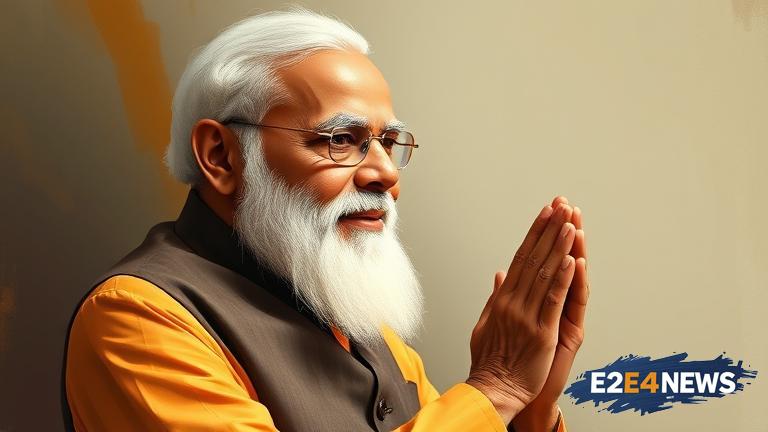In a recent statement, the Indian prelate emphasized the importance of PM Modi adopting a similar approach to Vajpayee, who was revered for his inclusive and tolerant stance towards minority communities. The prelate’s remarks come at a time when the Indian government is facing criticism for its handling of religious minorities. Vajpayee, who served as PM from 1998 to 2004, was known for his efforts to promote interfaith dialogue and understanding. He was particularly close to the Christian community, and his government implemented several initiatives to support their development. The prelate noted that Vajpayee’s generosity and trust in the Christian community helped to foster a sense of belonging and inclusivity among minority groups. In contrast, the current government has been accused of promoting a Hindu nationalist agenda, which has led to increased tensions between religious communities. The prelate urged PM Modi to learn from Vajpayee’s example and work towards creating a more inclusive and tolerant society. This, the prelate argued, would not only benefit minority communities but also contribute to the overall development and prosperity of India. The prelate’s comments have been welcomed by Christian leaders across the country, who have long been advocating for greater recognition and support from the government. However, some Hindu nationalist groups have criticized the prelate’s remarks, accusing him of promoting a ‘minority appeasement’ agenda. Despite these criticisms, the prelate remains committed to promoting interfaith dialogue and understanding, and has called on PM Modi to engage in constructive dialogue with minority communities. The prelate’s statement has also sparked a wider debate about the role of religion in Indian politics, with some arguing that the government should maintain a strict separation between church and state. Others, however, believe that the government has a responsibility to promote and protect the rights of all citizens, regardless of their religious affiliation. As the debate continues, the prelate’s remarks serve as a reminder of the importance of promoting inclusivity and tolerance in Indian society. The prelate’s call to PM Modi to emulate Vajpayee’s generosity and trust is seen as a significant step towards promoting greater understanding and cooperation between different religious communities. It remains to be seen, however, whether the government will heed the prelate’s advice and work towards creating a more inclusive and tolerant society. The prelate’s statement has been widely reported in the Indian media, with many outlets highlighting the significance of his remarks. The statement has also been welcomed by international organizations, which have long been advocating for greater recognition and support for minority communities in India. In conclusion, the Indian prelate’s call to PM Modi to emulate Vajpayee’s generosity and trust is a significant development in the ongoing debate about the role of religion in Indian politics. As the government continues to grapple with the challenges of promoting inclusivity and tolerance, the prelate’s remarks serve as a reminder of the importance of promoting interfaith dialogue and understanding. With the Indian government facing increasing criticism for its handling of religious minorities, the prelate’s statement is a timely reminder of the need for greater recognition and support for minority communities. The prelate’s comments have sparked a wider debate about the role of religion in Indian politics, and it remains to be seen how the government will respond to his call to emulate Vajpayee’s generosity and trust.
